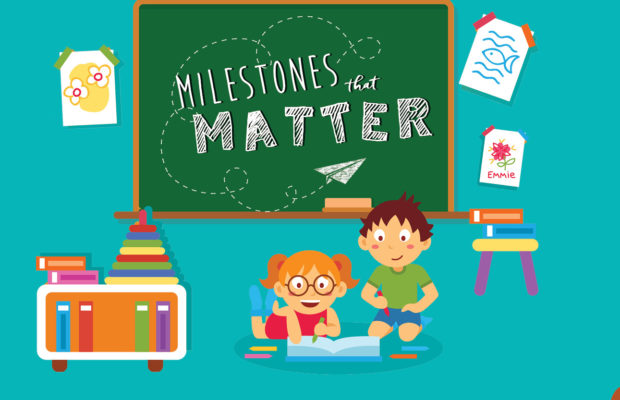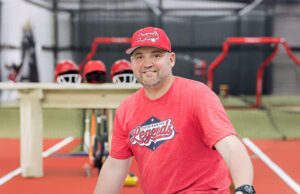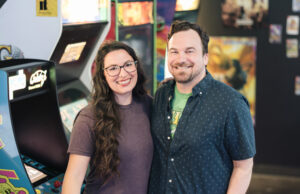
Childhood is a time of wonder. During early childhood, children begin to discover and learn about the world around them in a variety of ways. Whether it’s dressing themselves, learning to communicate using a few sentences at a time, or peddling a tricycle down the driveway, it’s important to note that every child’s developmental journey is unique.
Developmental milestones are important guidelines for how your child grows into the next stage of life. Every child achieves these milestones at a different rate, but if you are concerned that your child may be behind, there are many resources available for parents.
Tara Armstrong is the Early Childhood & Assistant Special Education Director for Bryant Public Schools. She oversees the more than 300 children aged 3-5 years old in the Bryant Pre-K education program. Her team aims to maximize every resource available for the best quality of life while preparing children for a typical classroom.
After serving five years as an elementary school principal, Tara received her Early Childhood Education certification and began working with children with disabilities.
“Coming to this position has reinforced my belief that early intervention is important,” explains Tara. “Therapy and early interventions make a big difference. Everyone grows at a different rate. Parents will contact us if they have a concern: for instance, if their child is not using words or sentences by age 3, if they are struggling to communicate.”
Providing a Better
Future for All Children
Every public school in Arkansas must abide by the Individuals with Disabilities Education Act or IDEA. According the Arkansas Division of Elementary and Secondary Education, IDEA is a national special education law, which “ensures that all children with disabilities (ages 3 to 21) in Arkansas receive a Free Appropriate Public Education.”
The Bryant School District provides special education and related services in public school at no cost to parents.
The Early Childhood Special Education program provides occupational therapy, physical therapy, speech therapy and developmental instruction to medically fragile children ages 3 to 5. The program has three speech pathologists, three special education teachers, two paraprofessionals that support the special ed teachers, two occupational therapists, and a physical therapist.
Tara and her team ensure that every child needing early intervention or special education receives care. “If we have a child with an address in the Bryant School District ages 3-kindergarten, we will provide an in-home or an office visit. We test for cognitive ability, gross and fine motor skills and speech language. If tests indicate the need for further evaluation, we will provide it.”
IDEA also ensures inclusivity inside the classroom by allowing children of all abilities to learn together with their peer group. “Inclusion is the best option—in our preschool you’ll see all of our students together,” explains Tara. “They will learn alongside their peers and receive inclusion therapy for the classroom. Sometimes children may leave the class for therapy, but they are able to be a part of the same pre-k class as typical kids.”
Kindergarten Readiness
While kindergarten-readiness skills are accomplished at different ages, working with your child on social, academic, fine and gross motor skills will help your child be prepared.
Play is a major part of learning. With supervision, allow your child to use items like crayons, paints and Play-doh. These activities “build muscles and sensory input,” says Tara. “Through play, children develop so many skills.”
Limit tablet time. It’s easy to give them the phone. But set boundaries on the amount of screen time. The American Academy of Pediatrics recommends limiting screen time to an hour per day of programming for children ages 2-5 years old.
Be a sportscaster. Kids learn from their environment; be the sportscaster of their world by narrating for your child. “I see a house, do you see a house, we are at the park.” By narrating, children “will build their own vocabulary,” says Tara.
Here are some examples of skills parents can foster in their children before beginning kindergarten:
• Listening to the teacher
• Understanding and following directions
• Standing in line
• Holding a writing utensil such as crayons, etc.
Seeking Services
If you are interested in pre-K enrollment or special education support for your child, contact your local school district to learn more.
“I think we are making a difference,” says Tara. “There is research out there that suggests if you can give kids early intervention it will make a positive impact on their education and cost less on families.”
If you would like to know more about the Bryant Early Childhood Pre-K and Special Education Program, email Tara Armstrong at earlychildhood@bryantschools.org.









0 comments